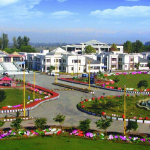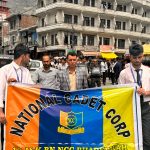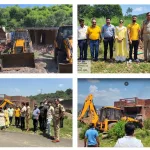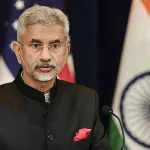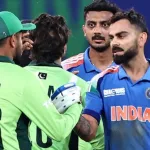Poetry is one of the most potent means by which the voices of the Kashmiri women are heard, unmediated and unfiltered. It talks about the longings of a woman’s heart in all its rawness. Aristotle in Poetics distinguished between “what may happen” (as depicted in Literature) and “what has happened” (as recorded in History) and gave Literature/Poetry more prominence over history. Literature, according to him expounds universal truths and delineates the human condition, unlike the mere recording of the past events in historical narratives.
The history of Kashmir gives rise to a layered and nuanced narration of the collective Kashmiri consciousness. Kashmiri woman’s identity is a palimpsest of accumulated silences. While Kashmir boasts of a written record of history since the ancient times, less is known of the voices of its women. Attempts at ‘genderizing’ the history of Kashmir are scant and numbered. Scholarship of the postcolonial and neo-colonial times painstakingly attempts to unearth the Kashmiri women’s voice in politics, social activism, education, Islamic resurgence and literature.
In absence of memoirs, autobiographies, biographies, personal diaries, letters, and journals recourse is taken to memory, reminiscence, folklore, anecdotes, footnotes to history (rather than history) and, poetry. Therefore, the voices of Kashmiri women are filtered through scholars, critics, historians, academicians and journalists. The void of written records gave way to the oral tradition which was handed over from one generation to the next, enriching the repository of collective memory and we come to know about the women of Kashmir in the past largely through the word of mouth.
Unlike the Western tradition wherein women writers like Julian of Norwich (c. 1342-?), Saint Theresa of Avila (1515-1582) and Margarey Kemp (1373?-1438?) wrote with an overtly spiritual intent, the women writers of Kashmir are hard to locate. As far as the presence of women is concerned, history, rarely recorded their voices or if it did, it was vis-à-vis a man in power or a man out of power. Therefore, the poetry of Kashmiri women writers informs us more about history than history itself. Women were the footnotes to history and rarely history itself.
Naseem Shifaie’s poetry occupies a unique place among the female poets of Kashmir as she emerges as a modern female voice in Kashmiri poetry in a post-modern world. She comes across as a sensitive voice who witnesses the ravages of time through the female prism with the publication of her first collection of poetry ‘Darichi Mutsrith’ (Windows Thrown Open) and second collection of poems ‘Na Thasy Na Aks’ (Neither a Shadow nor a Reflection). Her poetry is endowed with the eternal hues of human thought and emotion—sorrow, love, loss, despair, hope and joy.
Naseem Shafaie has been honoured with the Tagore Literary Award in 2009 and the Sahitya Akademi Award for the year 2011. A female subject who is constructed through the codes of a conservative and traditional society, finds herself within a structure too mighty and overbearing than her mere existence to grapple with. Conformity to such a structure in place can (can, but not always) win her a respectable place within the society and rebellion against it guarantees her an uncertain future and a bad name.
Shafaie’s poetry not only contextualizes the struggle and repression of a woman within Kashmiri society but also talks about the human struggle at large; the freedom to express oneself; one’s right to dignity and space; the fulfillment and vulnerability of motherhood; virilocality, the loss of cultural symbols; the bygone days of childhood and the web of memories.
Her collection of poems ‘Na Thasy Na Akshas’ has been translated by Indu Kilam and some of her poems are translated by Neerja Matto, Shafi Shauq and GL Labru. However, her poetry does not exhaust itself with a mere translation. The depth of her emotion is as deep as a woman’s heart.
Naeseem Shifaie’s Poetry Collection (Neither a Shadow Nor a Reflection) grapples with the identity of a modern Kashmiri woman. Naseem touches the notion of identity through the metaphors of ‘shadow’ and ‘reflection’: “No, I am not like you, nor the image of me in your dreams/ You are you–and I have my own being.” (Translation Neerja Mattoo).
In Lacanian psychoanalysis, the “mirror stage” begins with a child recognizing its own image and being in the mirror. It is the watershed moment for the discovery of self before a child starts entering into other structures of language and culture. The child starts identifying itself as a separate being with a will of its own; not merely an extension of its mother. As the child smiles, the smile is reflected back, and when it’s no longer scary, the journey of self begins.
Naseem’s title for her poetry collection transcends the idea of self as a body that merely mimics a reflection or is as elusive as a shadow. Self is neither a reflection, nor a shadow. In a society, the recognition of a woman’s selfhood is essential for the discovery of its men too.
Poetry brings to fore the repressed female voice/subjectivity, pertinent for not only the women of Kashmir (or anywhere else) but for its men too. A robust social and cultural environment validates the voices of its men, women and those who do not fall into the normative category of gender.
Giving voice to the unvoiced female consciousness more than often stirs up what is repressed in the collective unconscious of a society. The act of retrieval may be uneasy but is essential for the commitment to one’s political, social, ethical and cultural reality.
The discovery of ‘Self’ transcends mimicry and blind compliance. She calls mirrors (that reflect) deceptive as they enslave a person to ‘nafs’ (ego). Life is a “Great Sculptor” that awaits to make something fresh and beautiful out of us each day (“The Dialogue Within”).
Naseem tries to locate the self of a woman who in a traditional society is bound to be a shadow of her man or a reflection of her significant ones. She evokes women from history, mythology and folklore to highlight the resourcefulness and resoluteness of women: Lalla’s passion that could awaken the souls with her vision; Habba Khatoon’s pining for her lover while singing songs of love and longing; the unflinching devotion of Meera; the fidelity of Sita; and Mary’s miraculous act of birthing Jesus.
A woman may achieve all these feats but parallel to it is the awareness: “The pain of crowd’s gibe is destined for me.” A woman who is blamed for the fall of a man may be the reason of his being discovered as a human being in the first place. Women are liberated enough in her poetry to put their lover through a trial toppling the traditional discourse of a woman undergoing a trial like Sita to prove her fidelity.
It is pertinent to note that the first litterateur of Kashmiri poetry was a woman–Lal Ded. Lal becomes a metaphor in Naseem’s poetry as a woman who suffered from the brutality of a patriarchal structure and is ironically appropriated as a stereotype for feminine passivity in contemporary times: “When patient, she becomes a Lal Ded– a symbol of modesty/ and if she revolts, a slut she is.” (“The Girl Child”).
Lal was crazed by the cruelty inflicted on her in her in-laws home, she roamed the streets wearing tatters pouring out timeless wisdom of love, simplicity and monotheism. Initially, people were indifferent to her plight but eventually, she was fortunate enough not to be dismissed as a mad woman even in her “madness”. People started to recognize her word as sacred and she was meticulously preserved by the memory of common Kashmiris, especially women.
Virginia Woolf made an imaginary construct of Shakespeare’s sister called Judith in “A Room of One’s Own”. Judith’s talent like Lal Ded had to cost her sanity and a roof over her head, not to speak of a room of her own.
Naseem delineates an anecdote where Lal meets Sheikh Nur u Din and becomes self-conscious of her nakedness in her poem, “The Mystic who knew.” The anecdote is universal of a woman who has achieved self-actualization and becomes aware of her own ‘be-ing’ when she comes across a man who knows her worth:
“I know not since when, I was not only visible, but naked
to the eye.” (Translation Indu Kilam)
In Naseem’s Poetry voice and autonomy of body is handed back to a female subject. The incongruity between the mind and body of a man and woman is articulated by Kamla Das in her poem “ An Introduction”: “In him… the hungry haste/ Of rivers, in me… the oceans’ tireless/Waiting.”
The dissonance between a man’s haste in satisfying his needs and the woman’s desire to be loved steadily costs her sanity. Is surrendering of the body, the surrender of self?
Naseem denies this surrender of self by a man’s mere possession of a female body. She denies man the ‘self’, if not the ‘body’ that social constructs have handed over to him. She rewrites the body and the autonomy of her body is symbolized by the eyelids that still belong to her. She closes them when she denies to see her own nakedness; when her body is being feasted upon.
The female body is a house that can house a man but refuses to shelter him in the absence of love is delineated in her poem “The Last Morsel”:
But remember that my eyes lids are mine
and obey me when I order them to cover my eyes and
protect me and my modesty.
….……………………………………………………
You might just play, but I, a lifeless stone.
shall not break into sweat nor complain.
….………………………………………………….
Before I could say all this and make him feel shame,
I saw him leaving the door, the window, the glass pane, the house,
my mind, my body and my beauty and grace but he even went
cutting the slender thread of my very soul. (Translation Indu Kilam)
(The Author is Assistant Professor; Head, Department of English at SMS GDC Hyderpora. Feedback: [email protected])



